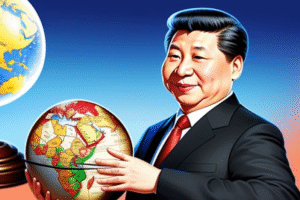$SPY $DIA $GLD
#GaryBlack #TrumpTariffs #Recession2025 #PolymarketData #EconomicImpact #TradeWar #MarketVolatility #InvestmentAnalysis #EconomicForecast #TariffEffects #FinancialMarkets #GlobalEconomy
Gary Black, a prominent investment adviser, recently spotlighted the increased likelihood of a recession occurring in 2025, attributing this risk directly to the tariff measures implemented by President Donald Trump. Utilizing data from Polymarket, a platform renowned for its predictive market analysis capabilities, Black pointed out that these economic policies have significantly altered the landscape, pushing the odds of a downturn to a concerning 57%. These insights draw from extensive analysis and trading patterns, highlighting the deep-seated anxieties among investors and market analysts about the medium-term economic outlook.
Trump’s tariff strategies, which were primarily aimed at bolstering American manufacturing and reducing trade deficits by imposing stringent tariffs on imported goods, particularly from China, have stirred much debate regarding their long-term economic impact. Critics argue that while the move was intended to protect domestic industries, it has escalated into a tit-for-tat trade war, adding layers of uncertainty and disruptions across global supply chains. This situation has not only affected direct stakeholders but also raised costs for consumers and businesses, possibly curbing economic growth.
Gary Black’s reference to Polymarket data sheds light on a crucial aspect of financial markets: the sentiment and anticipatory moves of investors. Predictive markets such as Polymarket offer a unique lens, aggregating views on future events and translating these into quantifiable odds. The current odds, suggesting more than a half chance of recession by 2025, serve as a clarion call to policymakers, businesses, and individual investors to brace for potential economic headwinds. It underscores the importance of forward-looking analysis and the need for adaptable strategies in face of policy-induced market fluctuations.
Reflecting on the broader implications, it’s essential to consider how these tariff measures and resulting trade tensions might shape economic policy moving forward. As the global economic environment continues to navigate through the challenges posed by trade disputes, geopolitical tensions, and other external factors, the insights provided by analysts like Gary Black are invaluable. They not only inform about potential risks but also guide investment strategies, policy formulations, and business decisions. As the discussions evolve, keeping a close eye on predictive market trends and economic indicators will be crucial for all market participants aiming to mitigate risks and leverage opportunities in an uncertain economic landscape.







Comments are closed.